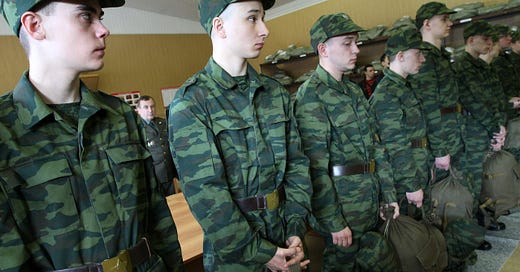Russian Tyranny and Conscription—Courtesy of Altruism
The Russian regime's decision to conscript 300,000 young men further demonstrates its complete disregard for individual rights
Keep reading with a 7-day free trial
Subscribe to The Objective Standard to keep reading this post and get 7 days of free access to the full post archives.




